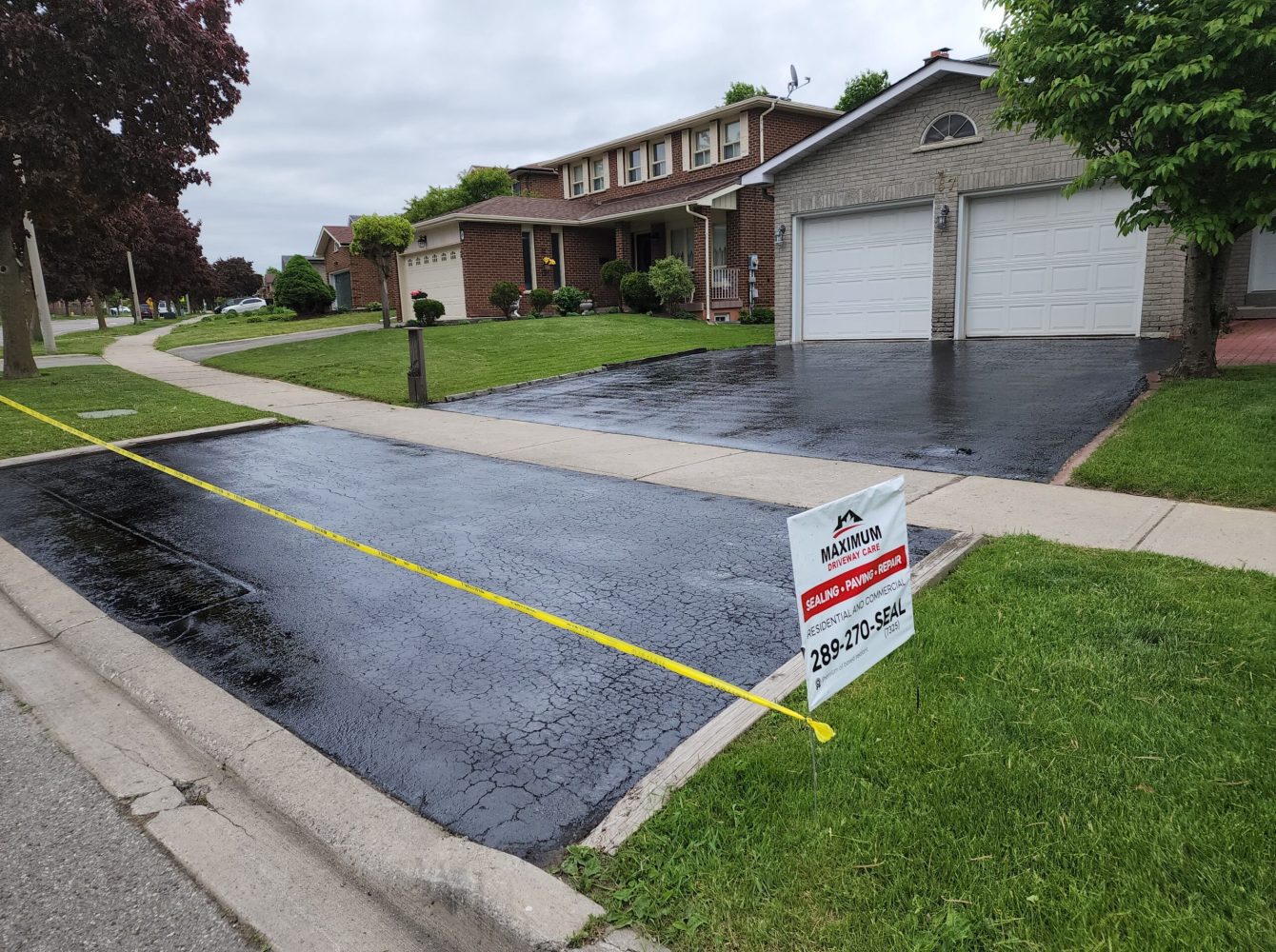Elevate Pavement Efficiency: Cold Mix Asphalt Sealing Tips
Cold Mix Asphalt Vs. Hot Mix Asphalt: Which Is Right for You?

Structure Distinctions
Cold mix and hot mix asphalts vary substantially in their composition, with unique attributes that affect their performance and applications. Cold mix asphalt is produced by emulsifying the asphalt binder with water and an emulsifying agent prior to mixing it with aggregate. This method enables the asphalt to be practical at reduced temperature levels, making it perfect for short-lived repair services and for usage in chillier weather. Warm mix asphalt, on the other hand, is made at heats, normally between 300-350 ° F, which aids to accomplish far better compaction and a more resilient end product. The hot mix asphalt production process entails heating the accumulation and asphalt binder separately prior to combining them at the asphalt plant.
Additionally, cool mix asphalt often tends to be much less thick and much more versatile than warm mix asphalt. This flexibility makes it much better matched for areas with greater degrees of motion, such as driveways or roads with heavy traffic. In comparison, hot mix asphalt is recognized for its high resilience and resistance to rutting and cracking, making it a favored choice for freeways and high-traffic roadways where longevity is critical.
Installation Process Variations
The procedure of mounting chilly mix and warm mix asphalt exhibits remarkable differences in their procedures and needs. In comparison, warm mix asphalt necessitates a more intricate setup process. Due to the heating demands, warm mix asphalt installments are commonly carried out by professionals with specific tools, guaranteeing a more irreversible and structurally sound outcome.
Longevity and Durability Factors
When taking into consideration asphalt alternatives, toughness and long life are crucial aspects to review for enduring sidewalk efficiency. Hot mix asphalt (HMA) is understood for its exceptional longevity and longevity.
In terms of longevity, HMA normally outshines CMA due to its remarkable strength and resistance homes. HMA sidewalks have a longer life span, needing much less frequent repair services and upkeep, which can equate to set you back savings in the future. Furthermore, HMA sidewalks are much more easily adjustable to satisfy details task demands, better enhancing their durability.
Cost Considerations
Considering the monetary effects is a vital facet when evaluating the option between warm mix asphalt (HMA) and cold mix asphalt (CMA) for pavement projects. While the first cost of warm mix asphalt is generally greater than that of cool mix asphalt, HMA frequently supplies a more affordable next solution in the future because of its premium toughness and durability. HMA is understood for its capacity to hold up against hefty traffic loads and severe climate problems, lowering the demand for constant repair work and upkeep. On the other hand, chilly mix asphalt is a lot more affordable upfront but may call for more constant patching and resurfacing, bring about greater maintenance costs in time.
In addition to product prices, it's vital to consider the expenses connected with installation and maintenance when contrasting HMA and CMA. HMA usually requires specialized tools and competent labor for appropriate installment, which can influence general job costs. On the other hand, CMA is simpler to deal with and can often be applied using check it out simpler strategies, possibly lowering installment expenses. Ultimately, the choice in between HMA and CMA must take right into account not just the preliminary cost however likewise the lasting economic effects to identify one of the most affordable choice for the specific pavement task.
Environmental Influence Comparison
Comparison of the environmental impacts between hot mix asphalt (HMA) and redirected here cold mix asphalt (CMA) reveals distinct distinctions in sustainability techniques. HMA manufacturing calls for high temperature levels, leading to raised power intake and greenhouse gas exhausts.
Additionally, the usage of CMA frequently involves reusing existing asphalt pavement, advertising resource conservation and lowering the amount of waste sent out to garbage dumps. By opting for CMA over HMA, roadway building projects can add positively to ecological conservation initiatives.
Conclusion
To conclude, the choice between cool mix asphalt (CMA) and hot mix asphalt (HMA) depends upon numerous elements such as structure, installation process, longevity, longevity, expense, and ecological impact. asphalt patch repair. While CMA offers a quick and economical option for small repairs, HMA guarantees remarkable durability and longevity for rush hour locations. Consider these factors very carefully to establish which kind of asphalt is the right choice for your paving needs

Taking into consideration the financial ramifications is an important aspect when examining the option in between hot mix asphalt (HMA) and cool mix asphalt (CMA) for sidewalk projects. While the preliminary price of hot mix asphalt is normally higher than that of chilly mix asphalt, HMA usually provides a much more cost-efficient solution in the long run due to its remarkable durability and durability. asphalt repair.Comparison of the environmental effects in between warm mix asphalt (HMA) and cool mix asphalt (CMA) reveals unique differences in sustainability methods.In verdict, the selection between cold mix asphalt (CMA) and hot mix asphalt (HMA) depends on different aspects such as make-up, installment procedure, resilience, durability, expense, and ecological effect